The Rhode Island Philharmonic has replaced him tomorrow in Mozart with Robert Levin.
No refunds are being offered.
It’s the orchestra’s biggest fundraiser.

The Rhode Island Philharmonic has replaced him tomorrow in Mozart with Robert Levin.
No refunds are being offered.
It’s the orchestra’s biggest fundraiser.

The German tenor has withdrawn from next season’s Tosca in New York ‘because of his personal life and professional obligations.’
Peter Gelb has replaced him with Vittorio Grigolo but this will be the fourth successive season that the world’s most sought-after tenor has failed to appear at the Metropolitan Opera.
Kaufmann will, however, sing at Carnegie Hall.

Joachim Horsley discovered it.
We like: Beethoven’s 7th, Movement 2, performed in a Cuban Rumba style, with all instruments created from the piano itself.
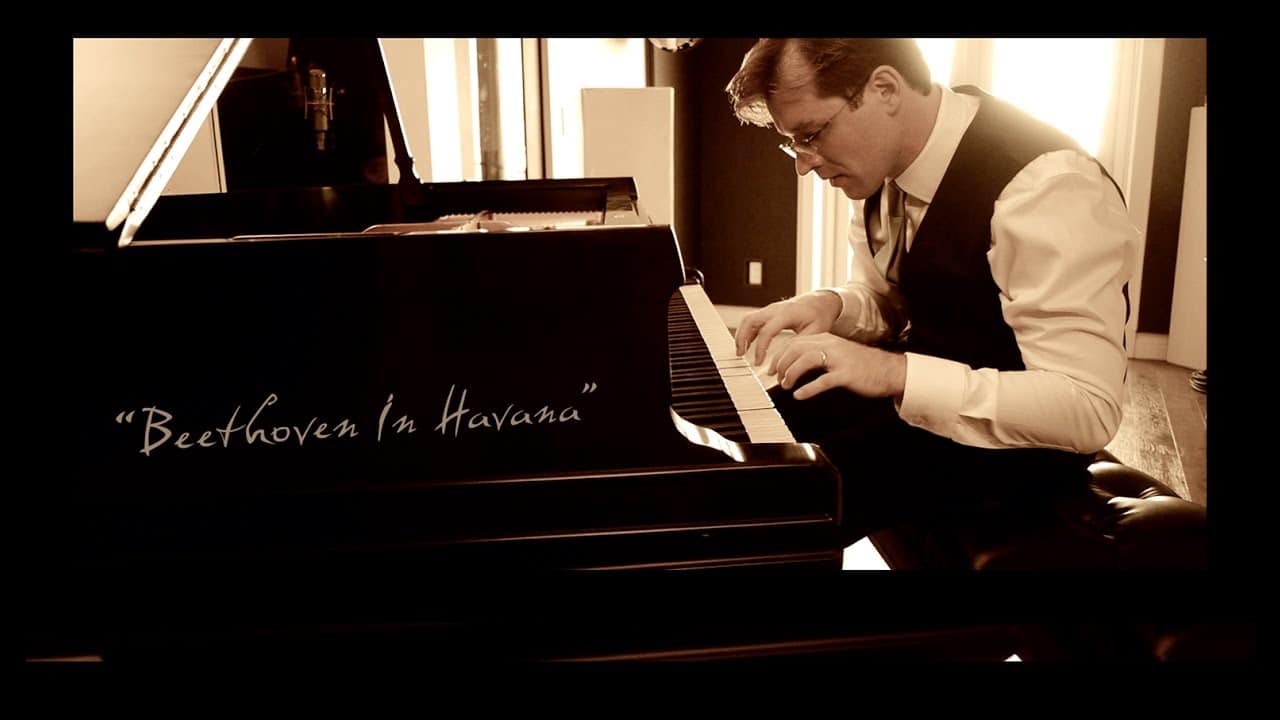
A proposal to rename a concert hall after Stanislaw Skrowacewski has promote the Minneapolis Star-Tribune to publish an ugly letter disparaging the much-loved former music director. Read it here.
This may be more than just bad taste. In the 16-month orchestra lockout in which the newspaper and its proprietor backed the hardline management while Skrowacewski passionately sided with the musicians.

Two new releases suggest that Mademoiselle was more than just a teacher of great composers.
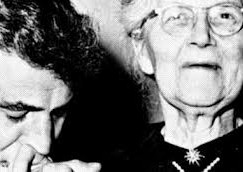
Read the Lebrecht Album of the Week:
In half a century of listening to records, I cannot recall ever hearing music by the noted French pedagogue Nadia Boulanger. Revered by a stream of American (Copland, Harris, Carter, Glass) and British (Berkeley, Musgrave, Maw) pupils, the formidable Mademoiselle deferred to the music of her short-lived sister Lily and barely spoke of herself as a composer. Two releases, newly landed, may help to adjust that misperception….
Read on here.
The President of the German Theatre Association, Ulrich Khuon, has taken the unusual step of publishing an open letter, accusing a critic on Die Zeit of hostility to the gay community. The review that provoked his response was by Christine Lemke-Matwey, covering Andrea Lorenzo Scartazzini’s new work, Edward II, which premiered two weeks ago at the Deutsche Oper, Berlin.
According to the DO’s website: ‘Swiss composer Andrea Lorenzo Scartazzini is writing a piece of musical theatre that focuses entirely on the role of the outsider Edward II and looks at society’s attitude towards homosexuals both then and now.’
Khuon begins: ‘Stunned and alarmed, I read the review of Christine Lemke-Matwey, the music critic of Die Zeit, who criticized the lack of quality of the opera “Edward II”, blaming it on the homosexuality of the Regieteam, and of some responsible persons at the Deutsche Oper.’
Here’s the open letter in full:
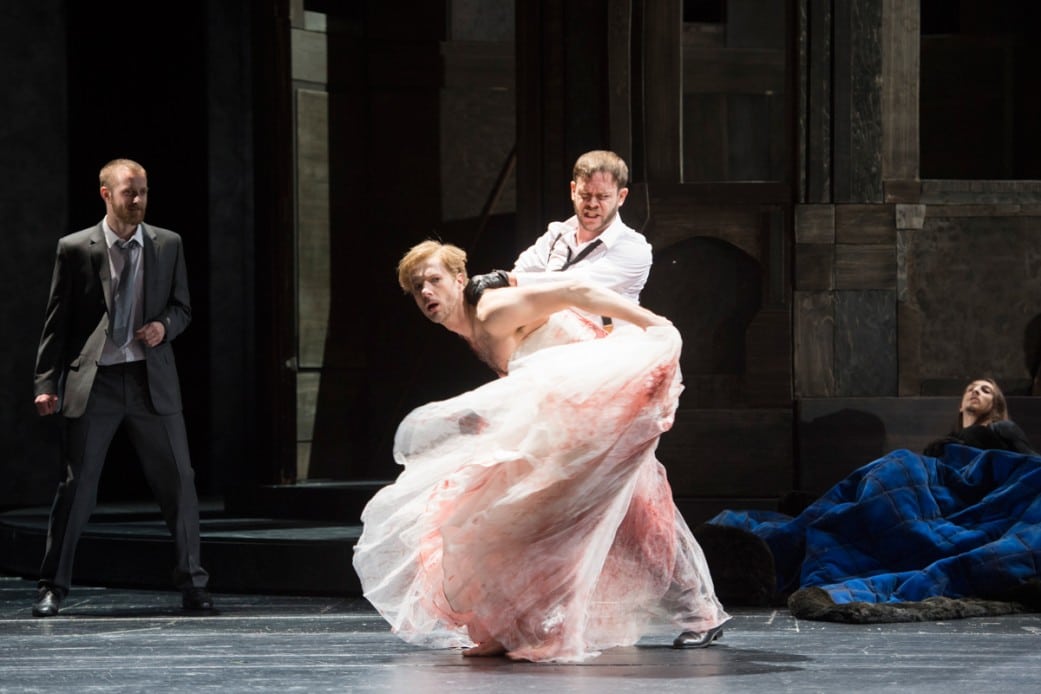
Photo: Monika Rittershaus/Deutsche Oper
Offener Brief des Präsidenten des Deutschen Bühnenvereins, Ulrich Khuon, zum ZEIT-Kommentar von Christine Lemke-Matwey
Verblüfft und erschrocken lese ich die Glosse von Christine Lemke-Matwey, der Musikkritikerin der ZEIT, die die von ihr beanstandete mangelnde Qualität der Oper ‘Edward II.’ in der Deutschen Oper Berlin kurzschließt mit der Homosexualität des Regieteams, ja überhaupt einiger Verantwortlicher in der Deutschen Oper. Das Ergebnis: “jämmerlich”, die Verantwortlichen: “schwul”.
“Schwul” wird hier als Zuschreibung benutzt, die Menschen auf ein einziges Merkmal reduziert – als wäre klar, welche Träume, Haltungen, Wünsche, Geschmäcker der Komponist, Librettist, Intendant haben, weil sie schwul sind; als wäre damit schon gesagt, um was für Menschen es sich handelt. Das ist ein Merkmal diskriminierender Diskurse.
Die Sprache, die Metaphernfelder und Konnotationen, die hier aufgerufen werden sind in höchstem Maße irritierend. “Schwule” bringen “jämmerliche” Kunst hervor, der schwulen Community wird “ein vitaler Opfersinn” unterstellt und in der Inszenierung gehe es “nur um Sex”, anders als in der “heterosexuell grundierten Operngeschichte” – das reproduziert alte, homophobe Bilder und Zuschreibungen.
All dies passt hinein in eine Tendenz forcierter normativer Normalitätswünsche und einen sich schon wieder auflösenden Respekt vor Diversität. “Man wird doch mal sagen dürfen”, lautet die Devise.
Gerade in einer Zeit, in der die Freude am Unterschiedlichen und die Kraft von diversen Gemeinschaften zugunsten einfacher Identitäten vernachlässigt werden, kann sich das Theater als Ort der Kollaboration nicht auf verkürzte Antworten beschränken. Vielmehr kann hier ein gelebter Universalismus, der Differenzen und unterschiedliche Bedürfnisse anerkennt, sie aber nicht wertet, als Entwurf erprobt werden. Das macht viel Arbeit und bedeutet ständige Aushandlung, Reibung, Überprüfung der eigenen Perspektiven und Zusammenhänge – ist aber ein Weg, über sich und die eigenen Horizonte und Begrenzungen hinauszuwachsen.
Ulrich Khuon
Präsident des Deutschen Bühnenvereins
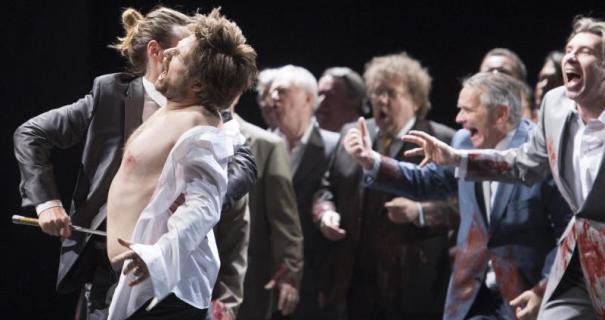
According to Khuon, Christine Lemke-Matwey’s review appeared only in print.
From the Telegraph’s summary of an Oftsed report:
… music was not good enough in almost two-thirds of primaries and secondaries. A quarter of schools had inadequate standards of music teaching – Ofsted’s worst possible rating.
Inspectors warned that lessons were “dominated by the spoken or written word, rather than by musical sounds”, with “too much focus on talking or written exercises”.
Sir Michael Wilshaw, the chief inspector, said: “‘Inspectors looking at music teaching in nearly 200 schools saw quality ranging from outstandingly good to extremely poor. Too often, inspectors simply did not see enough music in music lessons.
“Too much use was made of non-musical activities such as writing without any reference to musical sound…
Read on here.
The report is from 2012. Has much changed?
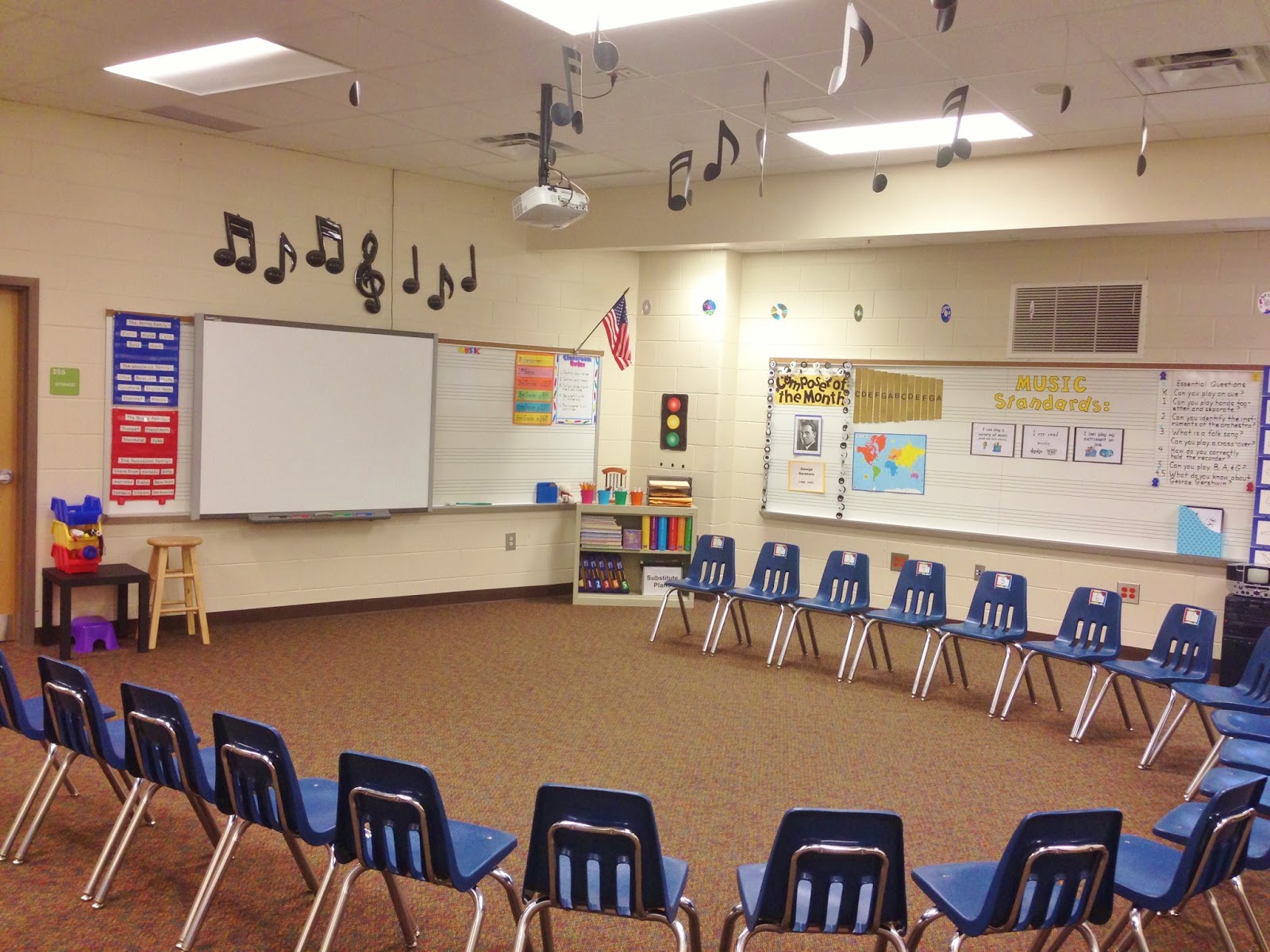
The Times newspaper has obtained a court order enabling it to name the head of music at Wellington College, a Berkshire private school, who has been suspended over alleged sex offences.
The charges relate to Ampleforth, the Roman Catholic School, in the 1980s (pictured).
Report here.

The mistress of Bayreuth has been booked to direct Tannhäuser at the Leipzig Opera next season.
She does not get many guest requests.
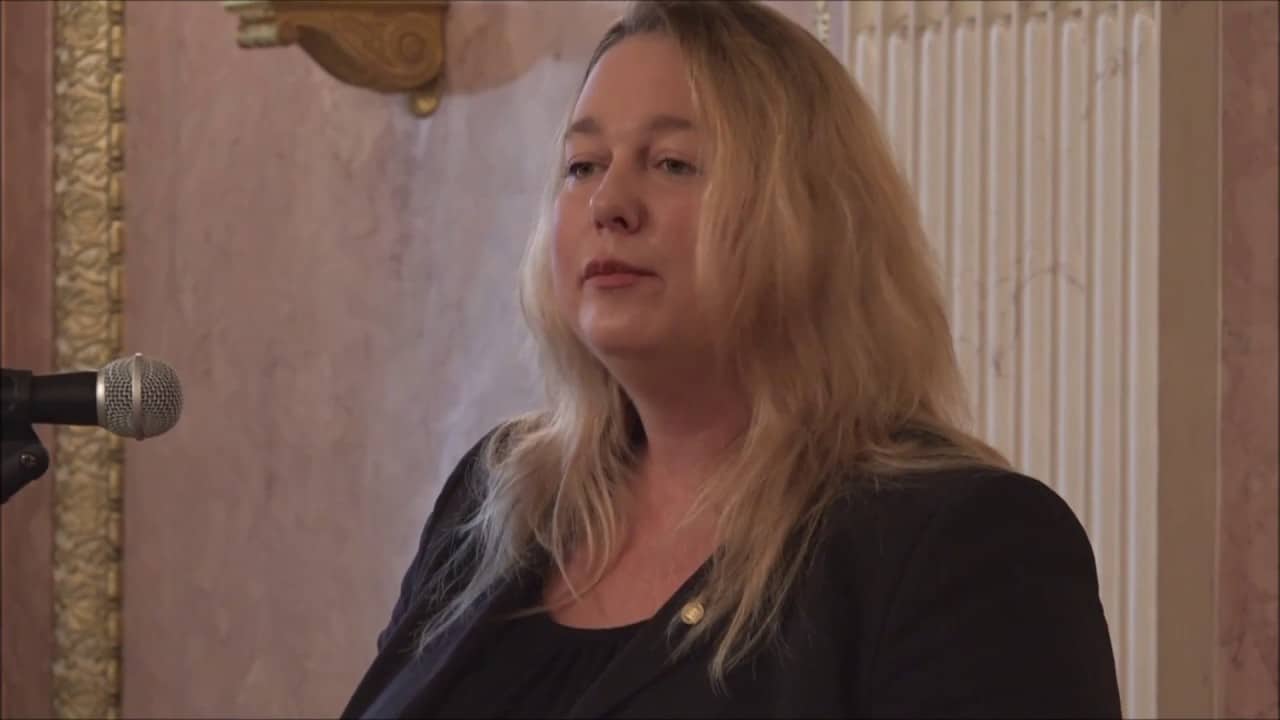
For its 325th anniversary year, Leipzig Opera wants a Wagner on board. The city is where Richard Wagner was born.
Thomas Sanderling, 74, has been named chief conductor of the Novosibirsk Philharmomic Orchestra.
The eldest son of the eminent Leningrad conductor Kurt Sanderling, Thomas was born in Novosibirsk in October 1942. His half-brothers, Stefan and Michael, are also conductors.

A dispatch from our quartet diarist, Anthea Kreston:
I am on my way to Paris – I nipped home for 17 hours between our two concerts in Vienna and today’s concert in Paris. I have exciting news. I fell in love, a little, two times this week! Once with Anna Vinnitskaya, our diminutive and effervescent partner on the Schumann Piano Quintet, and again with my NEW VIOLIN, loaned to me in Vienna – a Testore from 1710. What a week.
Our travel and performance schedule has been brutal – I feel like I have constant jet-lag – my eating, sleeping and travel inconsistencies are putting my through the ringer. Between the hyper-concentration and pressure of these concerts (Munich, Berlin, Vienna, London, Brussels and Paris, all sold out or nearly sold out), late evenings with super-fans and presenters, early mornings to the next destination, direct to the halls for rehearsal and concert – how can I eat normally, sleep decently? Our flight to London had severe turbulence, and I barely made it, bag in hand – only to be stuck for over an hour in stop and go traffic in the taxi. I was actually green – before I made a mad dash for the door and decided to just walk in the “fresh London air” for an hour to our hotel. I still haven’t recovered fully – feeling nauseous and sleep-crazy (reminds me of the feeling of taking care of a one month old baby- a series of cat-naps and quick, strange snacks).
An incredible thing happened – as I was taking off from the airport, coming home between concerts, a message came in from Andy Armstrong – our beloved former pianist from the Amelia Trio. His flight was delayed, and he was in a 3 hour layover in Berlin on his way to a concerto appearance in Sophia, Bulgaria. We met for a coffee – and Jason drove to the airport to hang out also. What a reunion! I miss our silliness, our ease – our love of the ridiculous. We have a running gag of who can trick the other one so we can pay any bill – or distract someone and start a movement while they are looking the wrong direction. Andy got me this time, and I quickly tackled him and got him in a headlock – we wrestled in line at the coffee place, much to the confusion of the clerk, and were wiping the tears away as jason came running up the terminal hallway to see us. What joy! To think, it has only been one year – catching up, talking about the big life issues and triumphs (Andy has a baby on the way) – to talk all together – we know each other so well. Catharsis.
Anna Vinnitskaya is a pleasure to be around, and to share a stage with her is a perfect balance of high-powered performance and constant surprise. Every evening, new nuances delighted me – this is the way that I also conceive of Schumann – understand the complexity, allow for flexibility. And – when she came backstage before our first concert in Munich – her thick, dark-red (almost plumb) hair, in a messy French twist, full black skirt and shirt covering every speck of her skin, with a hand-made lace embroidered dicky and cuffs (the dicky also supporting a teeny black satin bow) she was the very image of Clara Schumann. Her stage prowess also matched the legend of Clara – her ability to be in turn cajoling, immense, fragile, and what fun was had in the cat-and-mouse of the third movement (played even faster and more free in the nightly encores). I want more Anna!
These past months, as donors have come forward to outfit the quartet with new instruments, I have been proud of my Becker (1928 Chicago). There he stands, nestled between and Amati cello and a Strad violin. He holds his own – the velvet G string, the clear and powerful A. But, this week was my turn. I was met onstage at the Vienna Konzerthaus the morning after our first concert, to try three violins. It is a little like being in an arranged marriage. I have the stats on my future husband, photos, credentials and assurances that he is a fine, upstanding character. But – here I am – just some moments for a brief introduction, and off we go! I tried all three – the cadenza of Tzigane, Meditation from Thais, Sibelius. And – tentatively, I accepted the Testore – 1710 – the great Italian maker and father to a small dynasty of Testore makers.
That afternoon I took a long walk – going to the Mozart House museum and the magnificent gothic cathedral St. Stephens – the city where Mozart was born and died, Haydn served as choir boy, and even Vivaldi had service. I returned to the hall to practice and slowly I began to realize this violin could be it. I tested, looked for my voice, discovered a new voice. I said to our cellist – I will miss the velvet sounds of my Becker – and he said – “Anthea – your sound is velvet, not the violin”. I hope this is true. I love the weaknesses and inconsistencies of my Becker – I even seek them out. Like the small things you love about a partner – the nose hair, the way my 5 year old mispronounces bracelet – I search out the wolfs on my G string of my Becker – I love the cracking of sound – the verklemmt. The quartet wants me to stop playing there – the sound is inconsistent and unreliable – but I don’t want to stop – I don’t want to correct the pronunciation of bracelet or have my husband trim his nose hair. I love it.
I am boarding now – Testore in hand – for a glorious day in Paris. Old friends from Oregon meet me today – a former student and an elderly couple who were loyal concertgoers. In London, British in-laws came, and in Vienna an old friend from Eugene Oregon came. All in all – a week of new friends and a reconnection with old.
Lauren Philips, 26, a gifted violinist and junior doctor in Bristol, was last seen on Thursday 23 February.
Yesterday, her car was found in Woolacombe, Devon.
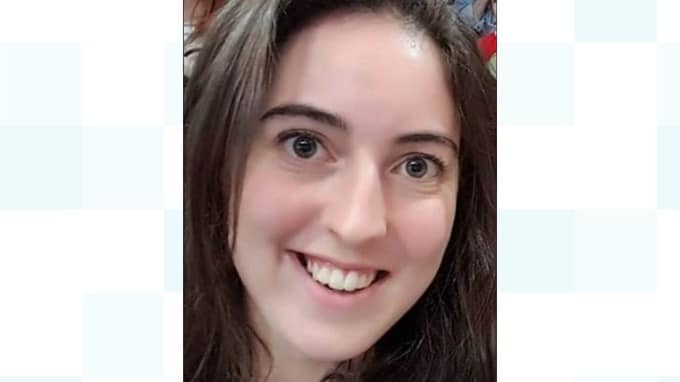
Police are appealing for help from anyone who may have seen or heard from her. Please call 101 if you have information, giving reference 5217045398.
Police statement:
We really need the public’s help in finding her so if you see her or think you might know where she is, please get in touch. We’re particular keen for bed and breakfast owners or hoteliers in and around the Woolacombe area to check whether she has booked in with them.
Friends tell Slipped Disc that Lauren played in the Haffner Orchestra and other ensembles. She has contacts in Wolverhampton and with musicians in many parts of the country.